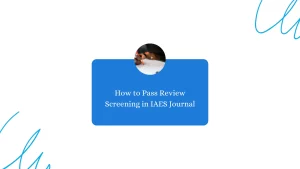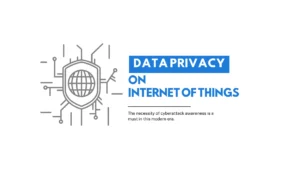To produce good students, teachers need to focus on several parameters and strategies. Based on the search results, the following factors can be identified as important for effective teaching:
Teacher’s ability to prepare lesson plans
The results of a study by Septiawan et al. (2023) showed that students’ technological readiness towards ERP gamification can improve their learning outcomes in an online learning environment. Most students who use ERP gamification have a medium technology readiness index, indicating strong technology adoption. Students are generally characterized as explorers with high interest in learning ERP gamification. Pioneers have a high willingness to adopt ERP gamification, while sceptics need tangible examples of the benefits of using ERP in learning. This research can be a benchmark in the development of technology-based learning media that suits the characteristics of students in higher education. Educators can use the results of this study to better customize their teaching methods and resources, thereby improving student learning outcomes in ERP gamification.
In online learning, students often experience problems related to the use of technology. One of them is enterprise resource planning (ERP) technology. Therefore, this study aimed to analyze the technology readiness index (TRI) to measure the extent to which students’ readiness for ERP gamification. This research targets students who use ERP gamification during management information systems and accounting information systems courses. The technique of determining the sample is using a census. So that all the population is used as a sample of 153 students in Indonesia, then analyzed using TRI. Through TRI analysis using SEM PLS, most students studying ERP gamification have a medium readiness index. The findings of this research showed that students are very close to technology, so they have a strong adoption of technology. Most students have an explorer character where they are enthusiastic and have high curiosity about learning ERP gamification. Pioneers who need a little encouragement from external parties to adopt ERP gamification. However, typical skeptics should be given a concrete example of the benefits of using ERP in learning. This research is also a benchmark for developing technology-based learning media according to the characteristics of students who are intended for technology in higher education.
Technology readiness in enterprise resource planning gamification to improve student learning outcomes
Budi Septiawan, Ayatulloh Michael Musyaffi, Martin Quinn, Ifa Ratifah
Teaching ability
Research published in the journal Education and Learning (Edulearn) by Suratmi and Sopandi (2022) revealed that teachers’ knowledge, skills, and attitudes in developing critical thinking skills are essential to train students’ basic thinking skills in primary schools. The study involved 366 teachers in 23 Indonesian provinces and used a Likert-scale questionnaire to collect data. The results showed that teachers’ knowledge, skills, and attitudes in developing critical thinking in elementary school students were rated as good. However, this study only describes the knowledge, skills, and attitudes of teachers in developing critical thinking skills as the basis for implementing learning in elementary schools. The implementation of critical thinking learning by elementary school teachers can be the subject of further research.
Knowledge, skills, and attitudes of teachers in developing critical thinking skills are very much needed to train students’ basic thinking skills. This descriptive quantitative study described the knowledge, skills, and attitudes of teachers in developing critical thinking skills in elementary school students. The data collection employed a questionnaire with a Likert scale. The questionnaire was distributed online using Google Form during teacher professional development training. Respondents in this study were 366 elementary school teachers spread across 23 provinces in Indonesia. The data obtained were analyzed descriptively and quantitatively. The results of this study indicated the knowledge, skills, and attitudes of teachers in developing critical thinking in elementary school students are a good category. Description knowledge, skills, and attitudes of a good teacher impact the designed learning process. However, this study only described teachers’ knowledge, skills, and attitudes in developing critical thinking skills, which the basis for implementing learning in elementary schools. The application of critical thinking learning by elementary school teachers can be used for further research.
Knowledge, skills, and attitudes of teachers in training critical thinking of elementary school students
Suratmi Suratmi, Wahyu Sopandi
Improvement in student achievement
Research by Manishimwe et al. (2022) investigated the use of inquiry-based learning (IBL) with the 5E learning model (Engage, Explore, Explain, Elaborate, and Evaluate) in biology subjects in Rwanda. The study was conducted on 231 secondary school students through a quasi-experimental approach with pre-test and post-test. The results showed that students who received learning with IBL had higher mean post-test scores than students who used conventional teaching methods. Statistical analysis also confirmed the significant difference between the two groups. Thus, this study recommends the use of IBL based on the 5E learning model in addressing the problem of poor performance in biology subjects at the school level. This is expected to help secondary school students in Rwanda learn biology and improve their academic performance.
Students in secondary schools in Rwanda manifest difficulties in learning science subjects including biology. Studies revealed that inadequate teaching methods dominated by teacher-centered traditional or conventional educational strategies are some of the factors that cause difficulties in learning, which in turn leads to poor achievements in biology. This study investigated the effect of inquiry-based learning (IBL) using 5Es instructional model (Engage, Explore, Explain, Elaborate and Evaluate) on secondary school students’ achievement in biology. There were 231 secondary school students from six schools in Rwanda constituted the sample. A quasi-experimental quantitative approach consisting of pre- and post-tests was used for data collection. Descriptive statistics were used for data analysis. Results indicated that the mean of post test score of experimental group was higher than the mean of counterparts in control group. Further, t-test and ANCOVA were used for inferential statistics. Findings showed once again significant differences between experimental groups taught with IBL and control group taught with conventional teaching methods. There was no significant effect on gender while a significant difference based on school location was identified. The study recommends educational stakeholders to use the IBL designed by 5Es instructional model at school level to solve problems related to poor performance in biology.
Enhancing students’ achievement in biology using inquiry-based learning in Rwanda
Henriette Manishimwe, William Aino Shivoga, Venuste Nsengimana
Changes in student behavior
Research by Xiao et al. (2023) explored how kindergarten teachers in China shape children’s sharing behavior by considering traditional gender roles. The study, conducted in public kindergartens in Hebei Province, China, found that teachers develop boys’ and girls’ sharing awareness through other-oriented strategies and elicit sharing practices through benefit-oriented and habit-forming strategies. However, differential treatment of boys and girls could be observed in some instances, indicating a subtle gender bias in shaping children’s sharing behavior.
Chinese boys and girls manifest distinct sharing behavior compared with children of other nationalities following different cross-national pathways. Undoubtedly, the Chinese traditional culture projects distinct expectations of female and male roles. Kindergarten teachers are responsible for delivering cultural norm knowledge to children and shaping their behaviors and beliefs. This study aims to provide an insight into how kindergarten teachers cultivate preschoolers’ sharing behavior considering the traditional gender-role culture in China. This study adopted the multiple case study approach and involved six participants working in a Chinese public provincial kindergarten in Hebei Province. The data collection techniques used comprise semi-structured interviews and document analysis. This study’s findings showed teachers develop both boys’ and girls’ sharing awareness through an other-oriented strategy. They also elicit sharing practices through benefits-oriented and habits-forming strategies. However, different treatments of boys and girls could be observed in some respects. These findings demonstrate that children’s sharing behaviors are shaped through the same strategy with a subtle gender bias. They further imply that the gender-role knowledge of Chinese kindergarten teachers impacts how they cultivate preschoolers’ sharing behavior.
Teaching strategies for cultivating preschoolers’ sharing behavior based on gender roles in Chinese culture
Yu Xiao, Maizura Yasin, Nor Aniza Ahmad, Norzihani Saharuddin
Teaching progress
The use of interventions involving tablets to teach pre-addition skills in children with autism has been shown to be effective. In Kahveci et al.’s (2023) study, the children used tablets and digital educational apps to learn to match visual images with mathematical expressions. The results showed that tablet-mediated intervention is a valuable tool for teaching pre-sum skills to children with autism. This approach allows children with autism to take advantage of new learning platforms and learn effectively in various learning areas, including mathematics. In addition, tablet-mediated interventions can also be customized to individual needs and preferences, making it a versatile and adaptable tool. However, future research needs to study the long-term effects of these interventions on children with autism and also explore the potential benefits of combining them with other educational applications.
Nowadays, tablets and their applications are part of the children’s daily lives. These digital educational activities can become a potent educational tool for efficient and effective in neurotypical as well as children with autism spectrum disorder (ASD). Tablets and their applications allow children to take advantage of new learning platforms and effectively learning through activities in learning domains, such as mathematics. In the present study representational-abstract sequencing instruction in the form of explicit instruction used with the help of mobile technologies. The aim of this study is to match the semi-concrete visual drawings with the correct abstract mathematical pre-addition expressions. Findings suggest using a tablet mediated intervention is effective teaching to match the semi-concrete visual drawing with the correct abstract mathematical expression. Implications for practice and future research are discussed.
Using a tablet-mediated intervention for teaching pre-addition skills to children with autism
Gül Kahveci, Nergüz Bulut Serin, Osman Akkus
Effective use of teaching methods
Tambak et al. (2023) found that the use of problem-based learning (PBL) by madrasah aliyah or senior high school teachers was associated with an increase in their social competence in education. The increased use of PBL in learning can positively affect madrasah teachers’ social competence, related to student engagement and teaching in learning. However, students’ responses to Islamic religious education learning practices may also moderate the relationship between PBL and madrasah teachers’ social competence. Overall, this study shows that PBL has an important role in strengthening madrasah teachers’ social competence in teaching Islamic religious education.
Developing social competence of madrasa teachers is increasingly popular in the classroom, but of these teachers, mixed results (without clear reasons) are reported. This study aims to see if increasing the use of problem-based learning (PBL) by madrasa aliyah or senior high school teachers in Indonesia increases their social competency in education. This study employed a quasi-experimental technique and data from PBL intervention program to investigate how PBL is connected with teacahers’ social competency and was analyzed using a t-test. In general, the social competence of madrasa teachers is solely treated as a predictor of the practice of teaching Islamic religious education. Still, we discovered that the greater use of PBL in learning can favorably affect the social competence of madrasa teachers. PBL is positively associated with student involvement and teaching in learning among the madrasa teacher social competency subscales. However, according to data analysis, students’ favorable responses to Islamic religious education learning practices can moderate the link between PBL and the social competency of madrasa instructors. This study has significance for the PBL model’s growth in strengthening the social competency of madrasa teachers learning Islamic religious education.
Problem-based learning methods: Is it effective for developing madrasa teacher social competence in teaching?
Syahraini Tambak, Siti Marwiyah, Desi Sukenti, Ilyas Husti, Zamsiswaya Zamsiswaya
By focusing on these parameters and qualities, teachers can create an effective and engaging learning environment that promotes student success.
By: I. Busthomi




